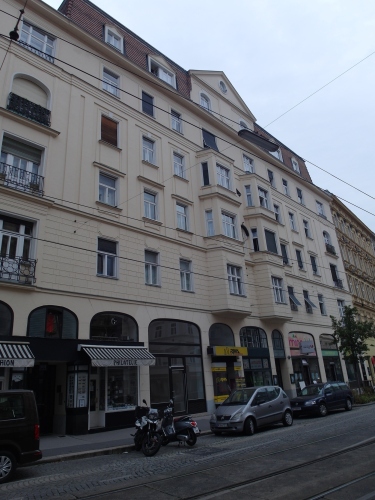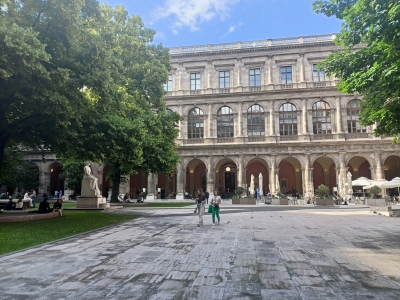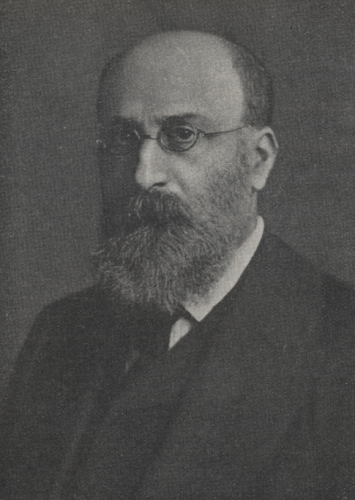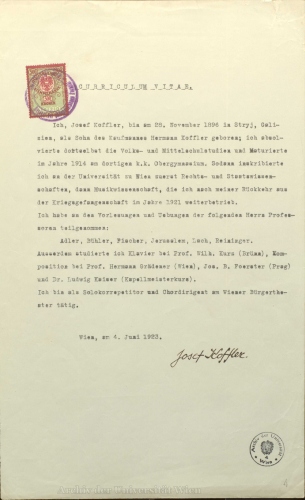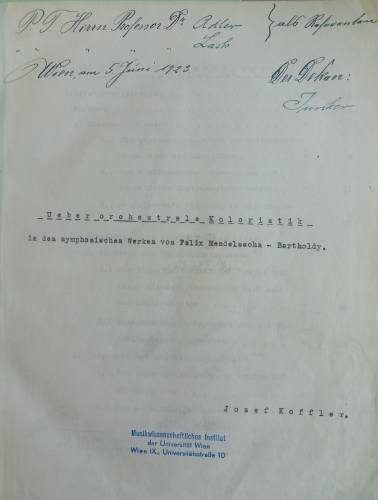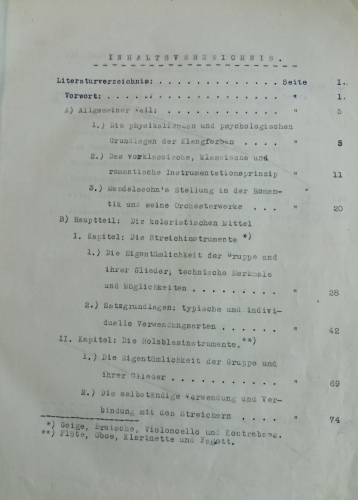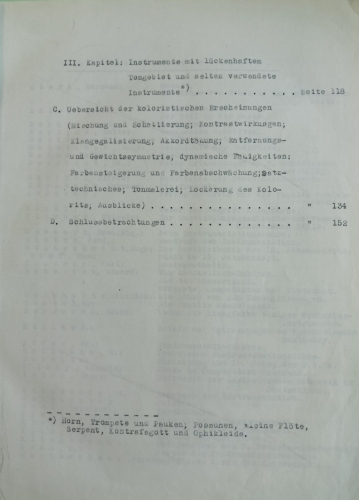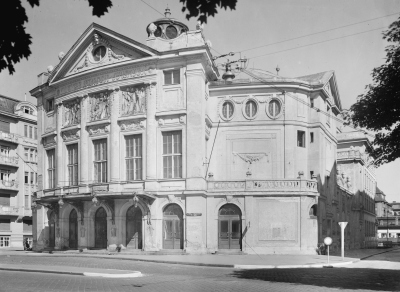Józef Koffler altogether spent five years in Vienna. It was a time of profound historical transformations. The would-be composer came there as a subject of Emperor Franz Joseph I, when Vienna was still the proud capital of a multinational empire (Habsburg Monarchy). He left Vienna in 1923, when the city was no more than the centre of a small republic (Republic of Austria) that had emerged from the ashes of the Habsburg monarchy after its fall in 1918.

Studies in Vienna and Wartime Events (1914–1923)
Koffler’s first Viennese lodgings were at 7 Hamburgerstrasse in the fifth district (Bezirk). A year later he moved to 16 Porzellangasse in the ninth district. European universities still had four faculties at that time: Philosophy, Theology, Medicine, and Law. At the University of Vienna, Koffler initially entered the Faculty of Law (in the academic year of 1914/1915). After three semesters of law studies, however (till the winter semester of 1915/1916) he decided to follow his true calling and moved to the Faculty of Philosophy (in the summer semester of 1915/1916), where he chose musicology as his major.
and headed for many years by Professor Guido Adler. The Institute was housed in a stately academic edifice at 1 Universitätsring, in the first district. In the summer semester of 1915/1916, there were 244 students attending classes in musicology (as their major or minor fields of study), 73 of whom (30%) had been born in Galicia. Apart from Koffler, one of those latter was Seweryn Barbag, who had graduated from a Polish secondary school in Buczacz (now Buchach in Ukraine) in 1910.
Koffler’s studies were interrupted by an army draft in the summer of 1916. Koffler was called up into the Austrian army. Two years later in November 1918 the Habsburg empire collapsed, Poland regained independence and Koffler, now a citizen of the revived Polish Republic, joined the Polish army, most likely taking part in Poland’s war with the Soviets in 1919–1920. When this war ended, he returned to Vienna in the autumn of 1920 and continued his musicology studies for three more semesters (1920/1921 and the winter term of 1921/1922). At that time, he lived at 67 Obere Donaustrasse in the second district, where his windows overlooked the Donaukanal.
(studies at the University of Vienna ended with a doctoral degree in the period discussed). The thesis was devoted to the orchestral coloring in the symphonic works of Felix Mendelssohn. Seweryn Barbag had similarly obtained his doctorate in musicology from Vienna’s Institute in 1922.
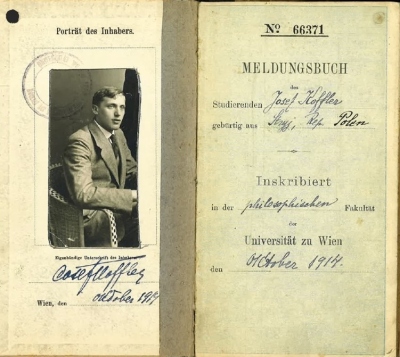
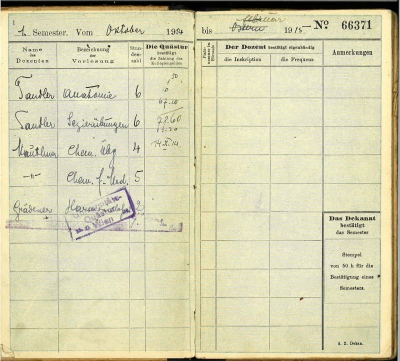
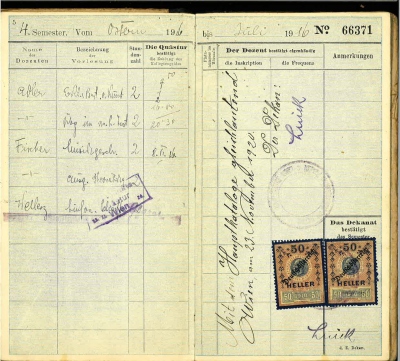
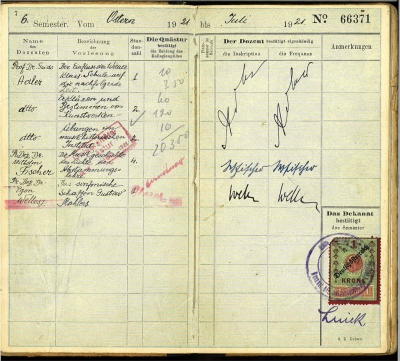
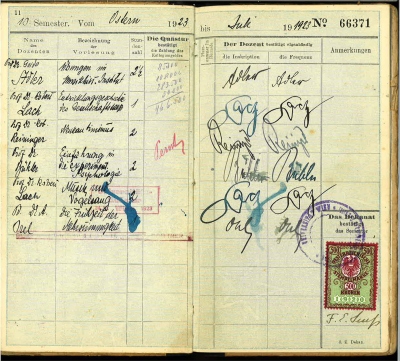

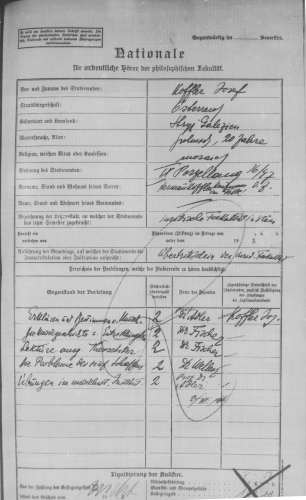













taking piano lessons from the Czech pianist Vilém Kurz, professor of the piano class at Brno Conservatoire (in 1919–1928) and previously for twenty-one years – of an analogous class at Lwów’s Conservatoire of the Galician Music Society (Galicyjskie Towarzystwo Muzyczne, GTM, 1898–1919). We cannot say whether Koffler first met Kurz in Lwów or only in Vienna, where a wartime branch of the GTM Conservatoire existed in 1914–1918. Koffler also learned conducting from Ludwig Kaiser (likewise a graduate from Vienna’s Institute of Musicology, 1907), who was a conductor at the city’s Hofoper, and after 1917 – at the Volksoper. In the early 1920s Koffler worked as an accompanist and choirmaster at Vienna’s Bürgertheater (located in a now non-existent building at 13 Zollamtsstrasse). The theatre, directed by Oscar Fronz, specialised in operetta productions.
